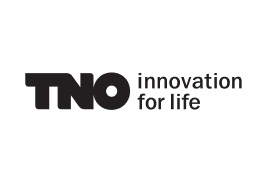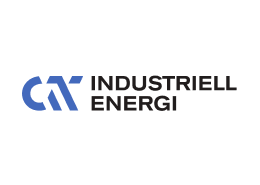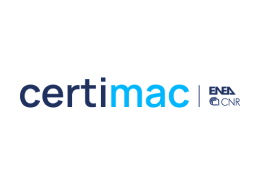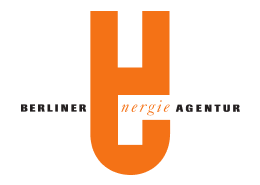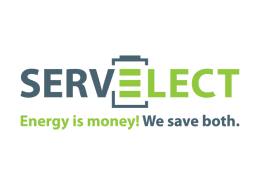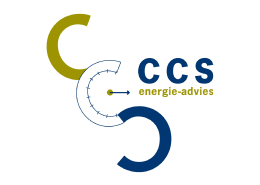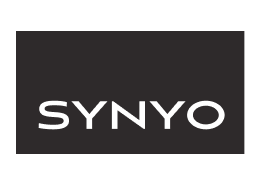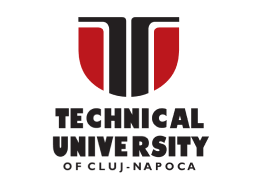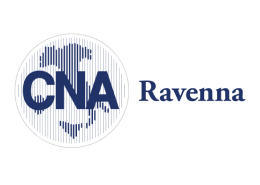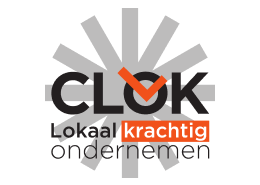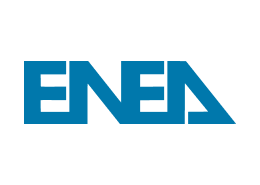Nederlandse Organisatie voor Toegepast-Natuurwetenschappelijk Onderzoek (TNO)
TNO (Nederlandse Organisatie voor Toegepast-Natuurwetenschappelijk Onderzoek or Netherlands Organisation for Applied Scientific Research) is one of the major applied research and technology organizations in Europe, with a staff of approximately 3300 and an annual turnover of over half a billion Euros. TNO is structured into nine units who carry out applied R&D on, among others, strategic business & policy analysis, energy technologies, industrial innovations, circular economy and environment, healthy living, traffic & transport, buildings & infrastructure, and safety & security. TNO is involved in many international programmes, notably EU-funded collaborative projects. TNO is consortium leader of the GEAR@SME project.
CIT Industriell Energi AB (CIT)
The Swedish company CIT Industriell Energi AB (CIT) is a wholly owned subsidiary of the foundation Chalmers Industriteknik since 1998. CIT represents consultants with expert competence in industrial energy systems and energy technologies, working both with industry and with Swedish authorities. CIT has its roots at Chalmers University of Technology and has a long history of collaboration with the university in research and industry projects. In addition to direct research collaborations with the academy, the company works as knowledge-assurance partner for industry and Swedish authorities. CIT has a long history of working with the Swedish Energy Agency, with e.g. evaluation of industry’s energy use from a system perspective, investigations and expert reports for energy policy considerations. CIT has 14 persons employed at the company, of which a majority have a PhD degree focused on energy technology with an industrial and environmental focus. CIT has a certified quality and environmental management system according to ISO 9001 and ISO 14001.
CertiMaC Soc. Cons. a R. L. (CERTIMAC)
CertiMaC is an Italian private Research Centre and Material&Energy Innovation Laboratory, founded by ENEA and CNR – the two main Italian Research bodies.
CertiMaC supports material manufacturers, designers, builders and enterprises with solutions and services for energy efficiency, high performance envelope and durability of materials. With focus on energy efficiency, energy audits and customized diagnosis are held through experimental, numerical and energy management diagnostic methods to rationalize primary energy consumption due to the building envelope and its subsystems.
Moreover, with reference to the Industrial and Tertiary Sectors, CertiMaC offers its expertise in Energy Audits through energy consumption analysis, on-site data monitoring and thermography/heat flow meter measurements in order to determine the actual energy performance. The evaluation and implementation of Energy Management Systems is also carried out in compliance with the ISO Standard 50001. Feasibility studies and documentation for applying for regional and national incentives are also part of the activity.
Contact:
Eng. Luca Laghi | gearsme@certimac.it | (+39) 0546 – 678548
Berlin Energy Agency (BEA)
On the initiative of the Berlin House of Representatives the Berliner Energieagentur (BEA) was founded in 1992 especially due to looming effects of the climate change and a decreasing access to fossil natural resources. Therefore, facing today’s environmental challenges the BEA aims at contributing to a more efficient use of energy. The federal state of Berlin, the Vattenfall Wärme Berlin AG, the GASAG Berliner Gaswerke Aktiengesellschaft and the KfW Bankengruppe hold an equal share of 25 percentage of the BEA. As a public-private-partnership the BEA fulfils a public mandate – nevertheless, all means and methods of doing business are committed to the premise of efficiency. As part of its three business divisions Consulting, Contracting and International Know-how Transfer BEA develops and realizes innovative projects that reduce energy. As a consulting firm BEA conducts informational and motivational campaigns in order to promote energy efficiency and the use of renewable energies.
Contact:
Frederik Lottje | lottje@berliner-e-agentur.de | +49 (0) 30 29 33 30 – 607
Servelect (SVT)
Servelect is an engineering ESCO company (Energy Services Company) from Romania, with more than 15 years of experience in the field of energy efficiency and more than 800 projects implemented all over the country. Servelect’s mission is to provide energy efficiency services and solutions to support industry and commercial buildings in Romania and, indirectly, the families of those working in them.
Contact
Timea Farkas
timea.farkas@servelect.ro | +40 759 020 373
Teleorman 33, Cluj-Napoca, Romania | +40 364 730 808
Cornelissen Consulting Services B.V. (CCS)
The history of Cornelissen Consulting Services B.V. (CCS) starts in 1997, when René Cornelissen founded it on 10th of November in Enschede. The company focused on the Combined Heat and Power solution (CHP), serving mainly the healthcare sector. After several years, CCS expanded the activities to include renewable energy, being involved in one of the first manure digesters in the Netherlands. After this assignment many projects followed in the field of manure fermentation and manure processing. In the following years, the foundation was laid for the digital tools of CCS. The first version of the digester tool and the energy efficiency tool for the healthcare and utilities sectors were developed during this time.
SYNYO GmbH (SYNYO)
SYNYO GmbH is research, innovation and technology company located in Vienna, Austria. SYNYO explores, develops and implements novel methods, approaches, technologies and solutions in various domains tackling societal, political, ecological and economical challenges. Analysing the impact of emerging technologies from an interdisciplinary perspective, SYNYO has a multi-angled view on diverse topics. The SYNYO team consists of 30 highly skilled employees specialized in various scientific and technical fields like Social Sciences, Safety & Security, Energy & Sustainability, Urban Future, Smart Technologies, Smart Health, or Digital Systems.
Technical University of Cluj-Napoca (TUCN)
Technical University of Cluj-Napoca (TUCN), an “Advanced Research and Education University” as awarded with the Order of the Ministry of National Education, is today a tertiary educational institution having both tradition and international recognition. The fields of study have a wide range, from engineering to architecture, fundamental sciences, socio-human sciences, and arts.
Research is, along with education, the main priority of the TUCN. In all faculties of the university there are research structures, from collectives, groups and laboratories to research centers and platforms. The performance anchored in the socio-economic environment, the international visibility and cooperation as well as the scientific novelty and interdisciplinarity are some of the characteristics of the research environment of the TUCN. Open research directions are oriented towards global priorities and perspectives: from the information and communications technology to renewable energy and ecology; from superconductivity, spintronics and nanomaterials, to management and robotics; from mechatronics and electrical engineering to the automobile and the home of the future, or to urbanism and society. TUCN is providing technological and knowledge transfer in almost all the areas of this categories. For small and medium enterprises TUCN provides counselling and specialized assistances especially if they are situated in business incubators or represent spin-off companies.
Confederazione Nazionale Dell’Artigianato e Della Piccola e Media Impresa Associazione Territoriale Di Ravenna (CNA)
National Confederation of Craft Territorial Association of Ravenna (CNA Ravenna), represents companies and entrepreneurs throughout the province of Ravenna, supporting them to develop, innovate and safeguard their business, contributing decisively to supporting the entire community. CNA works to give value to craftsmanship and small and medium-sized enterprises, presenting itself as their partner for development and promoting economic and social progress. This objective is pursued through a structured and widespread organization, a system of companies that offers integrated services and personalized advice to companies, a modern structure that provides its members with assistance, information and innovative solutions. CNA Ravenna is structured as an integrated and territorially rooted network based on 25 seats in the Province allowing for a direct contact with the enterprises. The membership is composed by around 6.000 enterprises and 10.000 entrepreneurs, and is supported by operative structures (SEDAR, ECIPAR, CNA Innovation) active in the fields of consultancy and assistance, services and innovation, entrepreneurial and professional training.
Stichting CLOK (CLOK)
Stichting CLOK focuses on a making local economies stronger, more vital and sustainable by bringing together and connecting local government and local business organizations and their representatives and making sure they know and understand each other. We aim to achieve this by providing a platform (CLOK Network) where public and private parties can meet and exchange knowledge together. Through CLOK Academy we educate local government representatives to better understand and cooperate with SMEs and vice versa. As a result local government and SMEs are willing and able to contribute to solving societal issues in the area of climate & energy, education and labour participation. Our members are local governments, local business organizations and park- and city managers (professional representatives).
Linked Third Parties
ENEA – Italian National Agency for New Technologies, Energy and Sustainable Economic Development
ENEA is the Italian National Agency for New Technologies, Energy and Sustainable Economic Development, a public body aimed at research, technological innovation and the provision of advanced services to enterprises, public administration and citizens in the sectors of energy, the environment and sustainable economic development. Since its foundation in the 1960s, its strengths have been applied research, technology transfer and technical-scientific support to companies, associations, territories, central and local administrations: for this reason – unlike other research institutions – the Agency depends on the Ministry of Economic Development. Its focus sectors are energy technologies (renewable sources, energy storage, smart grids), for which the Agency is also the coordinator of the Energy National Technology Cluster, nuclear fusion and nuclear safety (the Agency is the reference national research coordinator), energy efficiency (with the National Agency for Energy Efficiency), technologies for cultural heritage, seismic protection, food safety, pollution, life sciences, strategic raw materials, climate change. Among the emerging issues, ENEA supports the productive system as well as public authorities (Ministry of environment and Ministry of economic development in particular) in the transition towards the circular economy and the resource efficiency.



